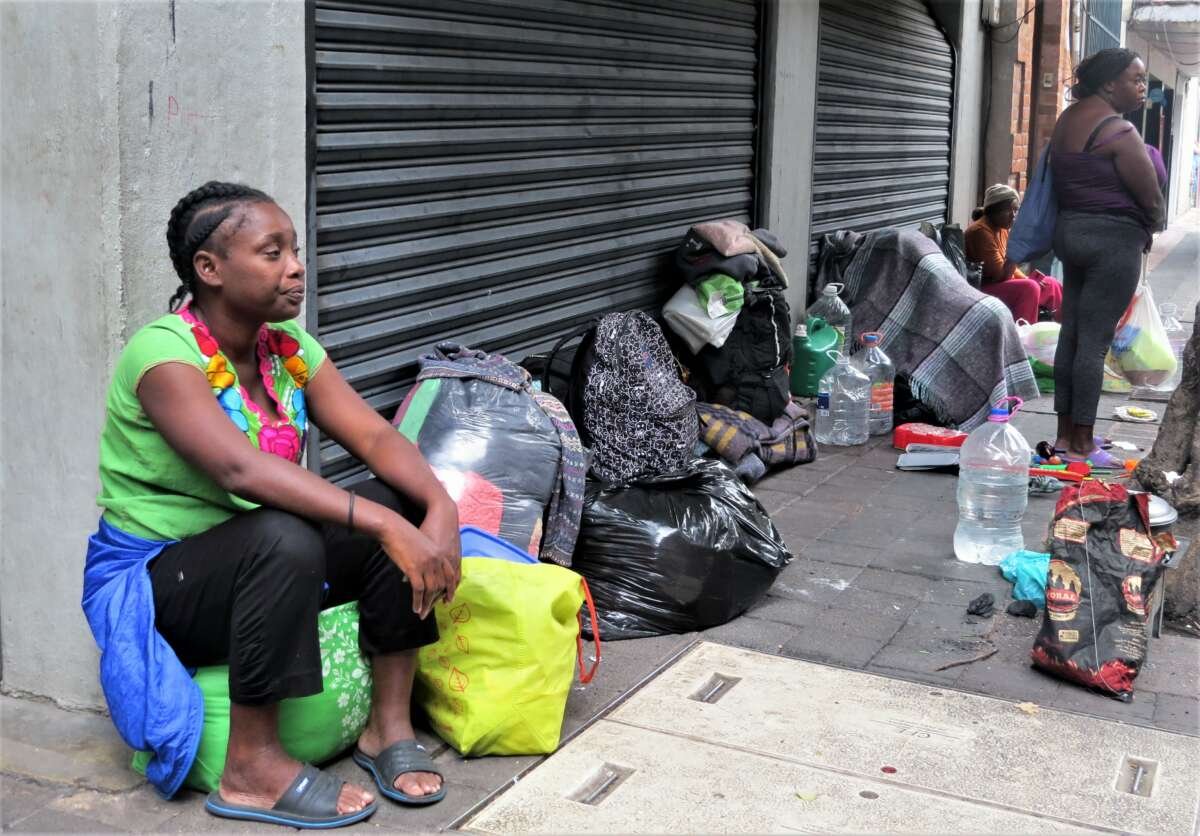Honest, paywall-free news is rare. Please support our boldly independent journalism with a donation of any size.
Thousands of migrants are sleeping on the streets of Mexico, waiting to get an appointment for an interview at the U.S. border, only to be deported back to dangerous and impossible living conditions.
Since the pandemic border measure Title 42 ended in early May, English-language mainstream media has emphasized that fewer people are trying to cross the U.S.-Mexico border.
But the need to migrate hasn’t changed. Instead, mainstream media are obscuring a harsher reality, in which new policies have turned Mexico into a holding country for refugees and migrants.
Interviews at the border are scheduled by an app, which forces refugees to wait for weeks or months. A new third country rule, in place since Title 42 ended on May 11 this year, means any migrants who have passed through other countries on their way to Mexico — something that is inevitable for many — must first seek asylum in those countries or otherwise be deported upon their arrival to the U.S. Under a new agreement, Mexico is now accepting Nicaraguans, Cubans, Haitians and Venezuelans that the U.S. has deported.
Nobody knows exactly how many refugees and migrants are sleeping on Mexico’s streets, because there is no registry and there are no systems in place to look after migrants or provide them with information.
“But that doesn’t make sense,” Valmont Luc Son, a Haitian refugee, told me as we sat in the street where he is staying, a few blocks from the Mexican Commission for Refugee Assistance (COMAR) in downtown Mexico City. He hadn’t heard about the third country rule, and I was explaining it to him as I interviewed him.
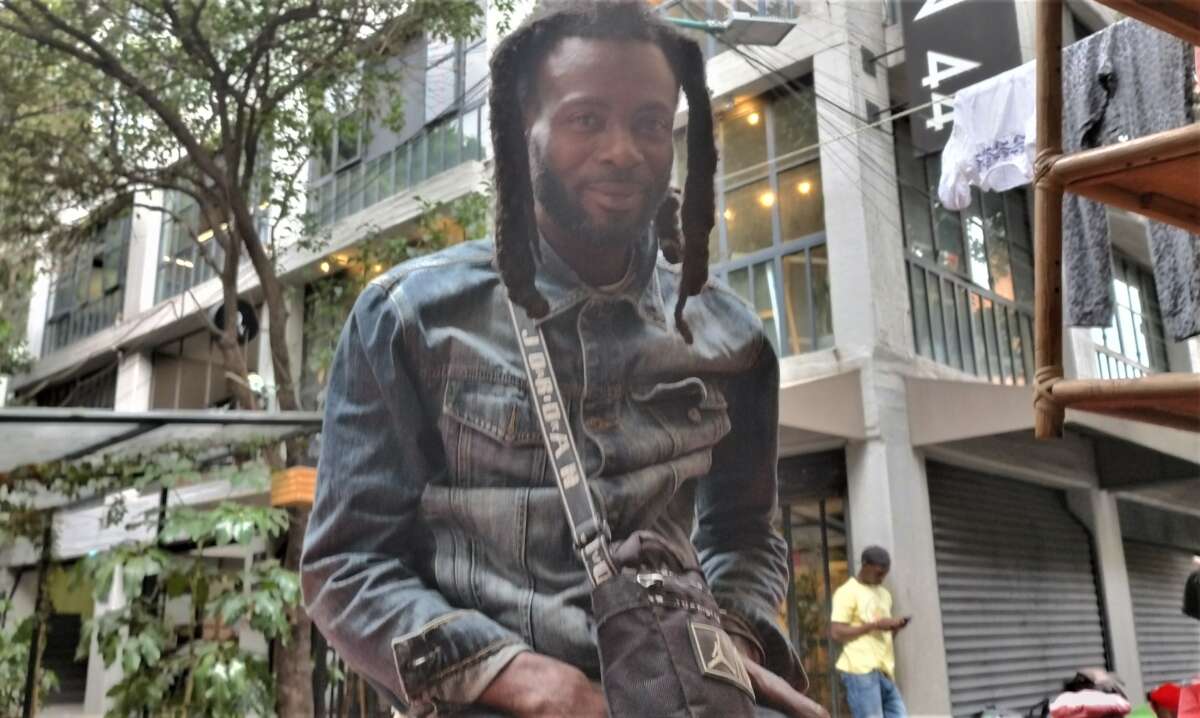
“I am fleeing an impossible situation — so much violence and corrupt politicians. We have to come through other countries to get to the border. I am sure it will be fine, they will have to let me in. What other options do we have? Where are we supposed to go if we can’t stay here and we can’t be in Haiti and we get rejected when we go to the U.S.?” he asked, frustrated.
Staying in Mexico City
Because the app for border interviews, called CBP One, is only accessible from Mexico City and north of there, Mexico City has now joined the northern border cities as a waiting place. The country is functioning as a staggered bottleneck. Some 15,000 migrants have been waiting for months — taking shelter from the rain under trees and trucks — in Tapachula, near the border with Guatemala, for transit visas to pass through Mexico. Then they wait in Mexico City to be assigned a port somewhere along the border for an interview with U.S. Customs and Border Protection (CBP) officers. At the end of May, COMAR announced that for the first time ever, it received more asylum requests in its Mexico City offices than in Tapachula.
In a joint statement released in June, more than 40 Mexican activist and NGO groups wrote:
The U.S. government has implemented a series of political agreements with Mexico and Central American countries, disguised as shared responsibility, in order to contain migration, but with no concern that they are externalizing their borders.… They are putting people at risk, not just of being deported to the situations they were fleeing, but also exposing them to the dangers of the journey. In Mexico, the government has left the responsibility of providing orientation and attention … to civil society.”
Shelters in Mexico City, working together in a “network of solidarity,” have been overflowing for eight months. Samantha Hernández Cerón, a spokesperson for CAFEMIN shelters, told Truthout the shelters are working at “up to 900 percent of our capacity.”
“At our peak, (CAFEMIN) had 1,000 people a night, and in this shelter (one of three run by CAFEMIN, located in the center-north of Mexico City) where we have the capacity for 80 people, we currently have 250,” she said.
Shelters depend on donations and fundraising to provide migrants with beds, food and workshops on how to use the new CBP app. “We are focused on resolving urgent problems, and don’t have time to deeply analyze the situation, or consider the long-term logistic, economic and operative challenges,” Hernández said, arguing that such issues can only be addressed through collective organization.
Shelters to the north, in states like Jalisco, Querétaro and San Luis Potosí, are also well beyond capacity. Monterrey, where few refugees went in the past, is now seeing 300-400 arriving at the main bus terminal daily.
“Without a doubt, there are more migrants now, and there is greater need. There’s a bottleneck here (in Tijuana), a situation of serious precariousness,” said Graciela Zamudio, the founding lawyer of Alma Migrante, an organization that provides migrants with advice and legal workshops.
In March this year, Mexico City authorities set up a shelter in Tlahuac, in the far south of the city. In mid-May, just after Title 42 ended, they sent the thousands of people there to other cities without telling them where they were going until a few hours beforehand. The shelter-camp was closed, then reopened four days later.
When I visited it in late June, there were around 200 people there. I wasn’t allowed inside, with one government worker telling me that her supervisor didn’t want anyone to see the dining area, as it wasn’t in good condition.
It is clear that the Mexican government wants migrants out of sight. It is sending deportees to far-away cities like Tabasco and Tapachula, and has no formal policy regarding what visa deportees will receive, or how their immediate needs for housing and health will be met.
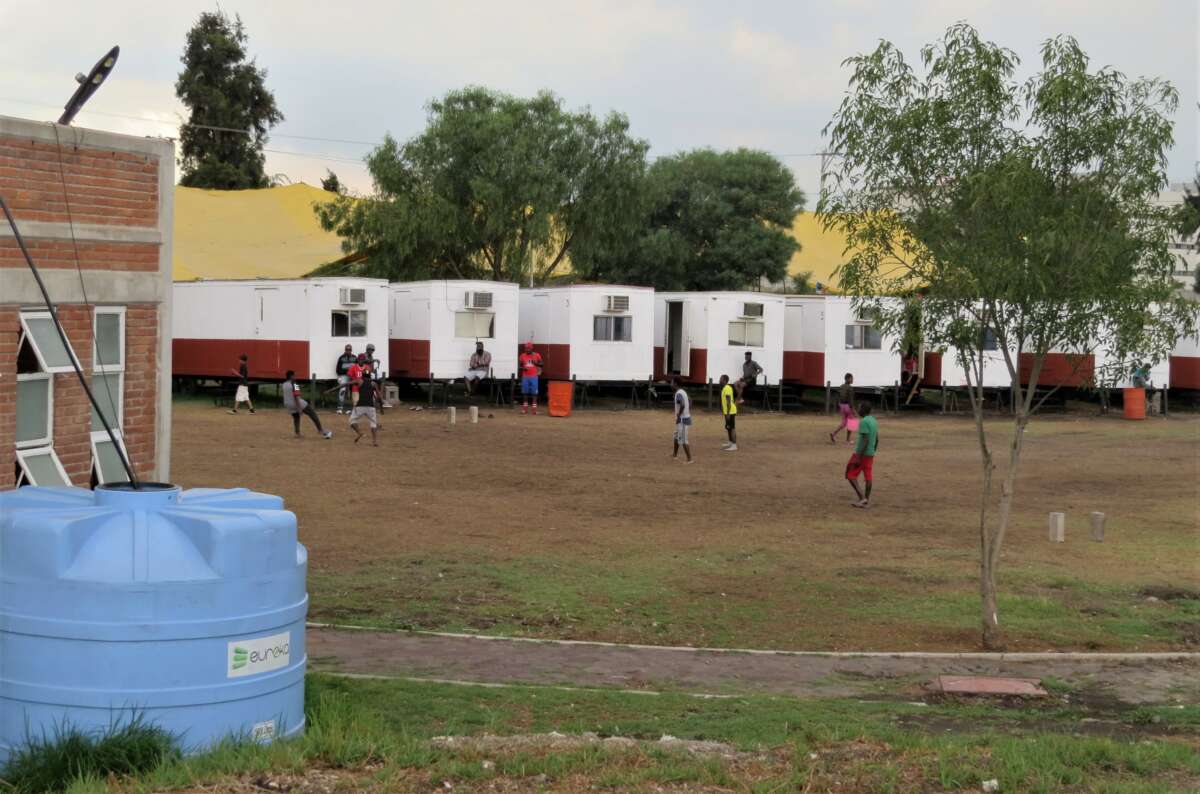
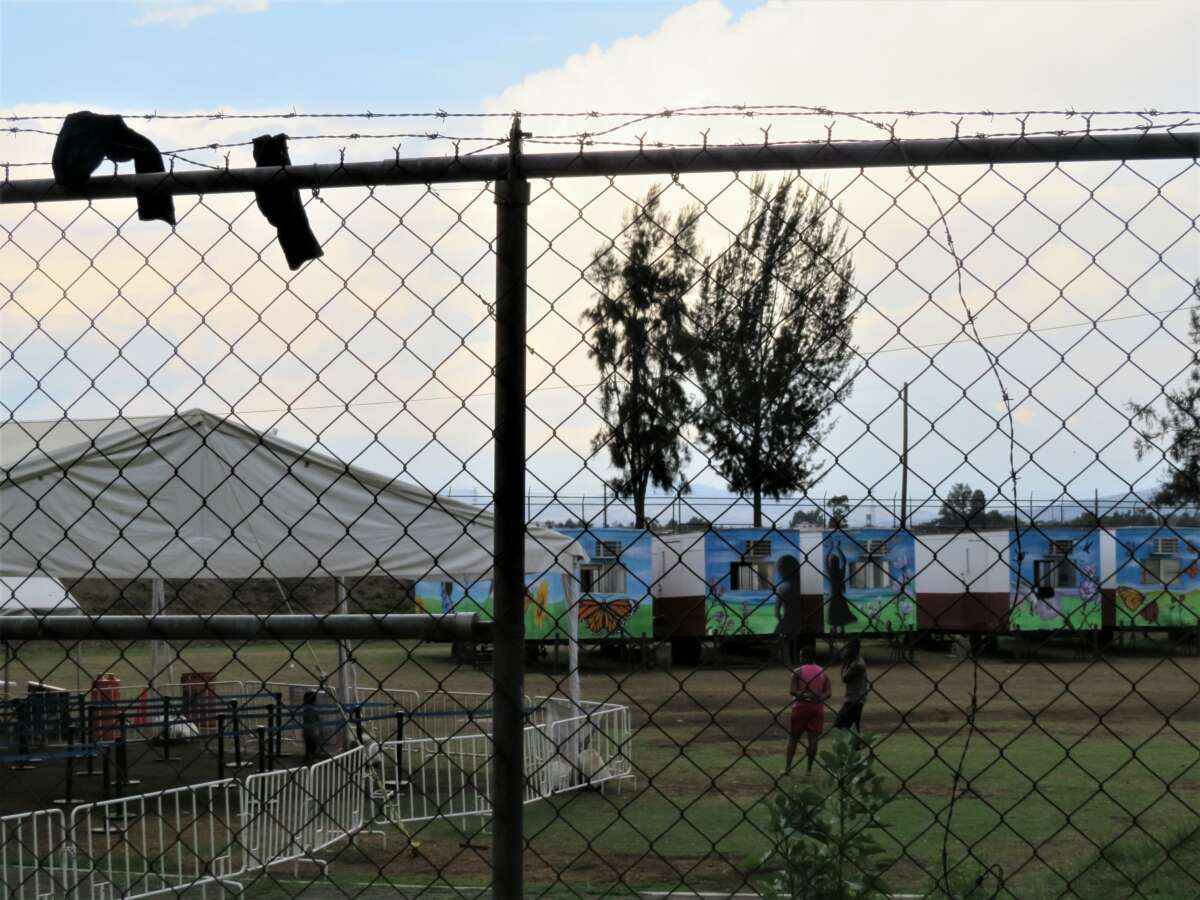
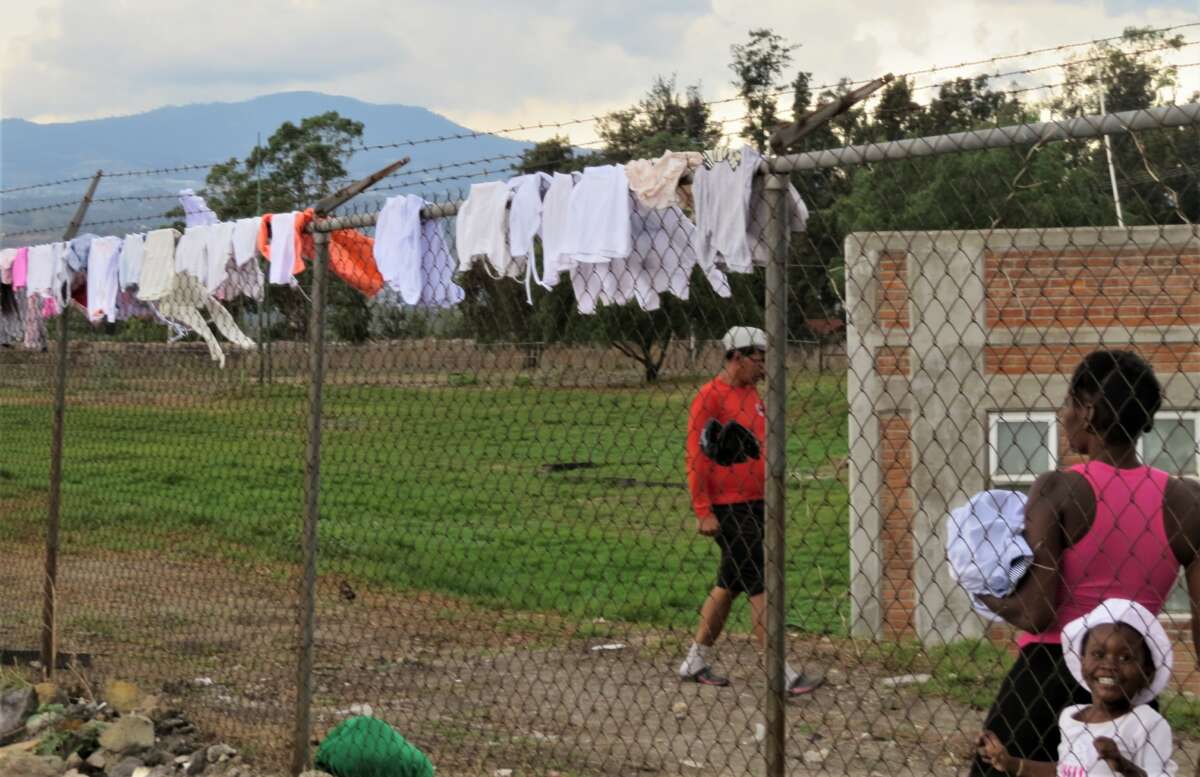
Precarious Living and Traveling Conditions
Migrants sleeping on the streets near the COMAR in Mexico City protested in May, demanding a response to their asylum requests, and holding placards that read, “We ask for dignified treatment, respect, and protection.” Such living conditions make them more prone to physical and mental health problems, to being attacked, extorted, raped or verbally abused. Many of these migrants go days without eating, and have no access to toilets or showers.
“We can’t stay in Mexico because there aren’t any facilities for migrants. I don’t have shelter, food, nothing. I can’t work. Some people come by here needing workers, but they ask for a lot of documents,” Luc Son said.
Human rights violations are systemic in Mexico, and people who are marginalized, unseen and unsupported are the most vulnerable. There are almost a million unpaid forced workers here, and more than 100,000 registered forced disappearances. As just one example, in May, 50 migrants traveling by bus were kidnapped in San Luis Potosí.
Daniel Álvarez fled Honduras with his family after being robbed numerous times where he lived, moving to a new suburb, and being continuously robbed there as well. But fleeing through Mexico, he described being extorted by immigration authorities on five separate occasions for $100 to $500.
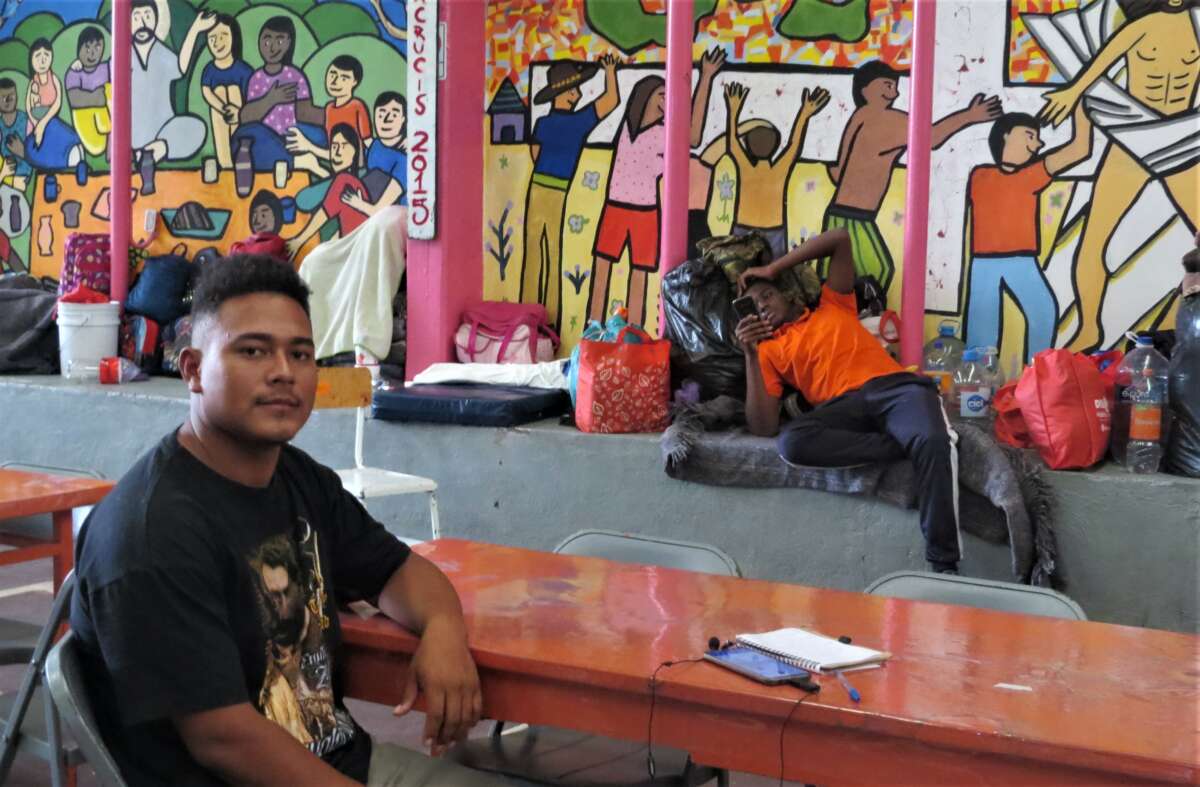
“They asked for money in exchange for letting us travel on buses, or so they wouldn’t assault my family. They said they would return us to Tapachula. We would go without food so that our kids could eat and because we were waiting to see how much they would charge us at the next stop,” he told Truthout.
It is common for organized criminals to kidnap migrants in order to demand ransoms from their families. Reporting of these crimes and violence tends to be “an exception … but now, even those people who are looked after by civil society, in shelters, are being kidnapped,” said Zamudio. Migrants often don’t report crimes because they are afraid of authorities.
Merlin Musset, from Venezuela, is waiting in Mexico City in a CAFEMIN shelter with her three children and brother for their border appointment. She was robbed when she first entered Mexico, and has heard of fellow migrants being kidnapped. “It’s difficult to decide to stay here or to continue, because either way, we’re in danger … we need safety, more security,” she said.
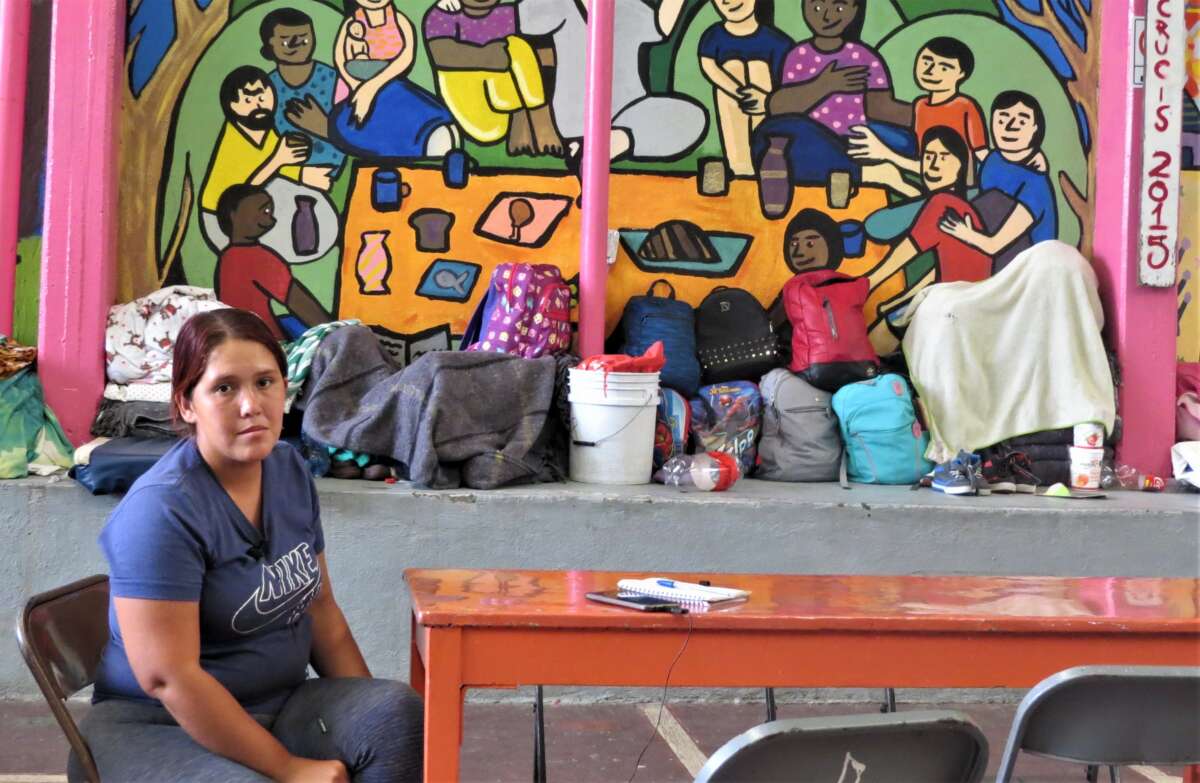
Regarding the CBP One app, people don’t know if they will be able to enter the U.S., and “that uncertainty has led to … things like kidnapping. It isn’t new, but it has been exacerbated. We are getting more reports of such incidents than we typically do,” Zamudio said.
“In the majority of cases, people don’t get appointments through the app, and it isn’t clear why. There’s also a lack of communication from the state about services migrants can access. They are uncertain about where they are welcome. Their uncertainty is full of fear; fear of being deported, of being attacked or abused,” she said.
And when migrants do get work, they face discrimination and danger. Central Americans are 45 percent more likely to die of a work-related accident or illness in Mexico, because migrants more often do the dangerous or difficult jobs.
In Mexico, “they take advantage of you because you’re a migrant, they want to pay less and get you to work more. I went for a construction job in Veracruz, and they said they could give me 100 pesos (six dollars) a day, for 11 hours a day. We don’t have rights here,” said Álvarez.
Mexico Does the U.S.’s Dirty Work
As of May 12, a day after Title 42 ended, the White House announced that Mexico would be accepting deported Cubans, Haitians, Nicaraguans and Venezuelans. Mexico’s former migration head, Tonatiuh Guillén, acknowledged that, “The priority is no longer human rights, development, and protection … but because of pressure from the United States, contention, detention, and expulsions are favored.”
Hence, since May, Mexico has been carrying out “on the fly” deportations against migrants at its southern border. There is no due process, and international norms are violated as refugees are forced back to Guatemala.
“If Mexico is going to receive deported migrants, it should treat that responsibility seriously and attend to them properly. But ultimately, the agreement is illegal and should be annulled immediately,” Zamudio said.
“But Mexico needs to be on good terms with the U.S., so it is managing migration in a palliative way, and economically, it has other priorities. If Mexico valued migrants, it would treat them like the heroes they are,” she concluded.
Press freedom is under attack
As Trump cracks down on political speech, independent media is increasingly necessary.
Truthout produces reporting you won’t see in the mainstream: journalism from the frontlines of global conflict, interviews with grassroots movement leaders, high-quality legal analysis and more.
Our work is possible thanks to reader support. Help Truthout catalyze change and social justice — make a tax-deductible monthly or one-time donation today.
